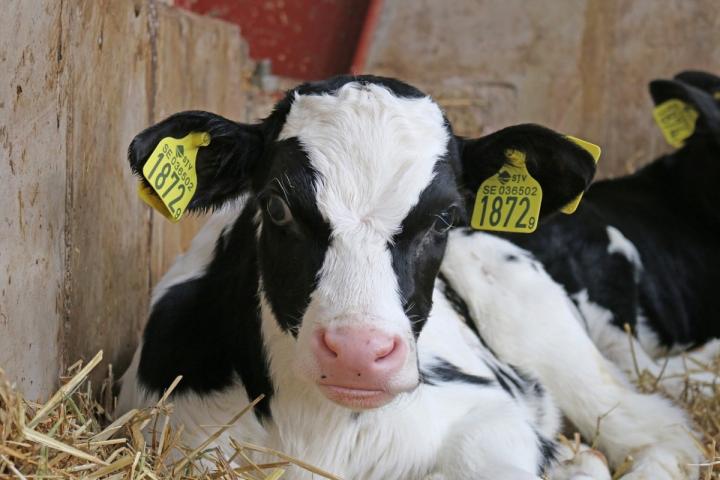TB vaccine protects calves in first weeks of life
Inoculation within the first month of life is effective, offering greater scope for protecting calves against disease.
Vaccines to prevent bovine TB are effective when administered in calves aged up to three weeks, research has shown.
The study extends previous research that showed the effectiveness of a standard TB vaccine when it was given in the first day of life. The finding enables easier administration of vaccines across a greater timespan to cattle herds during calving season.
The outcome represents an important step towards managing TB, a significant livestock disease for which control measures cost at least £100 million each year in England alone.
Researchers are hopeful that their findings, alongside others that show the efficacy of the BCG vaccine in calves, will transform measures to prevent the disease in cattle. Their work complements the ongoing development of a compatible diagnostic test for bovine TB, involving research from the UK Animal and Plant Health Agency and Department for Environment, Food and Rural Affairs.

Vaccination age
Scientists from the Roslin Institute and Pirbright Institute compared immune system responses and protection against infection offered by vaccinating sets of calves which were either one day or three weeks old.
Calves were inoculated with Bacille Calmette-Guerin (BCG), a standard vaccine used against TB in humans. It comprises a weakened form of the Mycobacterium bovis bacteria, which causes TB in cattle.
Following vaccination, the levels of proteins associated with an immune response were similar in the blood of the one-day and three-week old cattle, indicating a comparable level of response induced by vaccination.
When exposed to TB bacteria, the vaccinated animals showed better levels of immune protection against infection compared with non-vaccinated calves.
The results indicate that vaccinating cattle at any stage in the first month of life offers effective protection against TB infection.
Their study was published in Pathogens.
Current tests for TB infection are incompatible with the BCG vaccination, but field trials are ongoing to develop an alternative diagnostic which gives reliable results.
The Detecting Infected amongst Vaccinated Animals (DIVA) test, being developed by the Animal and Plant Health Agency and the UK Department of Food and Rural Affairs, will allow differentiation of vaccinated from infected animals.
Our results show that there is a good window of opportunity to administer vaccines to newborn calves, offering flexibility during the calving season. We envisage that giving a vaccine in the first month of life, with regular boosters thereafter, combined with an effective test in the form of the DIVA technology, could combine to offer manageable control of TB among cattle herds, potentially within the next decade.
** The Roslin Institute receives strategic investment funding from the Biotechnology and Biological Sciences Research Council and it is part of the University of Edinburgh’s Royal (Dick) School of Veterinary Studies. **
Related links
Image credit: Annie Spratt on Unsplash


